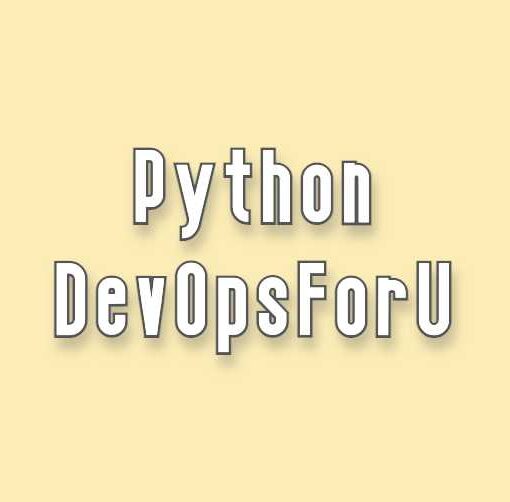There are several certification options available for professionals interested in becoming certified in DevOps practices and principles. Top DevOps Engineer Certification includes:
Certified Kubernetes Application Developer (CKAD)
The Certified Kubernetes Application Developer (CKAD) is a professional-level certification offered by the Cloud Native Computing Foundation (CNCF), the organization behind Kubernetes. The CKAD is designed for professionals who have experience developing applications on Kubernetes, an open-source container orchestration platform, and are responsible for designing and implementing cloud-native applications that run on Kubernetes.
To earn the CKAD certification, you must pass the CKAD exam, which tests your knowledge and skills in the following areas:
- Deploying applications on Kubernetes.
- Managing the lifecycle of applications on Kubernetes.
- Configuring networking, security, and storage for applications on Kubernetes.
- Managing and troubleshooting applications on Kubernetes.
- Debugging and monitoring applications on Kubernetes.
It is recommended that you should have at least six months of experience working with Kubernetes, including experience with developing and deploying applications on Kubernetes. You should also have a strong understanding of the Kubernetes architecture and core concepts, as well as experience working with command-line tools and APIs. But after gaining good Kubernetes knowledge you can attempt this certification.
Certified Kubernetes Administrator (CKA)
The Certified Kubernetes Administrator (CKA) is a professional-level certification offered by the Cloud Native Computing Foundation (CNCF), the organization behind Kubernetes. The CKA is designed for professionals who have experience working with Kubernetes, an open-source container orchestration platform, and are responsible for managing and maintaining production-grade Kubernetes clusters.
To earn the CKA certification, you must pass the CKA exam, which tests your knowledge and skills in the following areas:
- Installation, configuration, and maintenance of Kubernetes clusters.
- Deploying and managing applications on Kubernetes.
- Monitoring and troubleshooting Kubernetes clusters and applications.
- Managing security and networking in a Kubernetes environment.
- Managing storage and persistent volumes in a Kubernetes environment.
It is recommended that you should have at least six months of experience working with Kubernetes, including experience with installing, configuring, and maintaining Kubernetes clusters. You should also have a strong understanding of the Kubernetes architecture and core concepts, as well as experience working with command-line tools and APIs. But after gaining good Kubernetes knowledge you can attempt this certification.
Google Cloud Associate Cloud Engineer
The Google Cloud Associate Cloud Engineer certification is a professional certification that demonstrates an individual’s ability to deploy applications, monitor operations, and maintain cloud projects on the Google Cloud Platform. It is intended for individuals who have a strong understanding of cloud computing concepts and the ability to use Google Cloud Platform technologies to design, develop, and manage solutions.
To become a Google Cloud Associate Cloud Engineer, you will need to pass the Google Cloud Associate Cloud Engineer certification exam. This exam tests your knowledge and skills in the following areas:
- Setting up a cloud solution environment.
- Planning and configuring a cloud solution.
- Deploying and implementing a cloud solution.
- Ensuring the successful operation of a cloud solution.
- Configuring access and security.
To prepare for the exam, you may want to consider taking a training course or studying online resources and documentation provided by Google. It is also recommended that you have hands-on experience working with Google Cloud Platform technologies in a real-world environment.
Google Certified Professional Cloud DevOps Engineer
The Google Certified Professional Cloud DevOps Engineer is a professional certification that demonstrates a person’s ability to design, develop, and maintain complex cloud infrastructure using Google Cloud technologies. It is intended for individuals who have experience designing and managing solutions on the Google Cloud Platform and have a strong understanding of the principles of cloud computing and the development practices that enable continuous delivery and deployment.
To become a Google Certified Professional Cloud DevOps Engineer, you will need to pass the Google Cloud DevOps Engineer Professional certification exam. This exam tests your knowledge and skills in the following areas:
- Implementing and maintaining Continuous Integration (CI) and Continuous Delivery (CD) pipelines.
- Building and deploying applications using Cloud Build and Container Registry.
- Implementing and managing application infrastructure using Compute Engine, Kubernetes Engine, and App Engine.
- Setting up monitoring, logging, and traceability using Stackdriver and Cloud Logging.
- Managing and optimizing cloud resources using Cloud Monitoring, Cloud Debugger, and Cloud Profiler.
- Implementing and managing secure and compliant solutions using Cloud Security Scanner and Cloud Security Command Center.
AWS Certified Solutions Architect – Associate
The AWS Certified Solutions Architect – Associate is a professional certification offered by Amazon Web Services (AWS) that demonstrates an individual’s expertise in designing and deploying scalable, secure, and highly available systems on the AWS platform. It is intended for individuals who have a strong understanding of the AWS architectural principles and the ability to design and deploy applications using AWS services.
To become an AWS Certified Solutions Architect – Associate, you will need to pass the AWS Certified Solutions Architect – Associate exam. This exam tests your knowledge and skills in the following areas:
- Designing and deploying scalable, highly available, and fault-tolerant systems on AWS.
- Leveraging the AWS Cloud infrastructure to build secure and scalable applications.
- Selecting the appropriate AWS services to design and deploy an application based on given requirements.
- Migrating an existing on-premises application to AWS.
- Estimating the cost of an AWS solution and identifying cost-control mechanisms.
To prepare for the exam, you may want to consider taking a training course or studying online resources and documentation provided by AWS. It is also recommended that you have hands-on experience working with AWS technologies in a real-world environment.
AWS Certified DevOps Engineer
The AWS Certified DevOps Engineer – Professional is a professional certification offered by Amazon Web Services (AWS) that demonstrates an individual’s expertise in designing, developing, and deploying software on the AWS platform using modern practices and tools such as continuous delivery and infrastructure as code. It is intended for individuals who have a strong understanding of the principles of DevOps and the ability to use AWS services to implement and automate the end-to-end software delivery process.
To become an AWS Certified DevOps Engineer – Professional, you will need to pass the AWS Certified DevOps Engineer – Professional exam. This exam tests your knowledge and skills in the following areas:
- Implementing and managing continuous delivery systems and methodologies on AWS.
- Using infrastructure as code to provision and manage AWS infrastructure.
- Building, deploying and operating scalable, highly available, and fault-tolerant systems on AWS.
- Migrating on-premises workloads to AWS.
- Implementing and managing security and compliance.
- Debugging and troubleshooting.
HashiCorp Certified: Terraform Associate
The HashiCorp Certified: Terraform Associate is a professional certification that demonstrates an individual’s ability to use Terraform, a popular infrastructure as a code tool, to provision and manage infrastructure across a variety of cloud providers, including AWS, Azure, and Google Cloud Platform. It is intended for individuals who have a strong understanding of infrastructure as code concepts and the ability to use Terraform to design and deploy infrastructure.
To become HashiCorp Certified: Terraform Associate, you will need to pass the HashiCorp Certified: Terraform Associate exam. This exam tests your knowledge and skills in the following areas:
- Understanding the Terraform workflow and how to manage infrastructure as code.
- Using Terraform to manage infrastructure resources such as compute, networking, and storage.
- Using Terraform to manage resources across multiple cloud providers.
- Managing infrastructure dependencies and using Terraform modules.
- Collaborating on infrastructure using Terraform and version control.
To prepare for the exam, you may want to consider taking a training course or studying online resources and documentation provided by HashiCorp. It is also recommended that you have hands-on experience working with Terraform in a real-world environment.
Red Hat Certified Specialist in Ansible Automation
The Red Hat Certified Specialist in Ansible Automation is a professional certification that demonstrates an individual’s ability to use Ansible, a popular open-source automation tool, to automate the configuration, deployment, and management of infrastructure and applications. It is intended for individuals who have a strong understanding of automation concepts and the ability to use Ansible to design and implement automation solutions.
To become a Red Hat Certified Specialist in Ansible Automation, you will need to pass the Red Hat Certified Specialist in Ansible Automation exam. This exam tests your knowledge and skills in the following areas:
- Understanding the concepts and architecture of Ansible.
- Managing infrastructure with Ansible.
- Developing and maintaining ansible automation.
- Using advanced ansible features.
- Troubleshooting Ansible automation.
To prepare for the exam, you may want to consider taking a training course or studying online resources and documentation provided by Red Hat. It is also recommended that you have hands-on experience working with Ansible in a real-world environment.
It’s important to note that these certifications typically require a combination of hands-on experience and formal education, and may also involve passing an exam or completing a series of courses. It’s also worth considering whether a particular certification aligns with your career goals and the needs of your organization.
This article is created based on experience but If you discover any corrections or enhancements, please write a comment in the comment section or email us at contribute@devopsforu.com. You can also reach out to us from Contact-Us Page.
Follow us on LinkedIn for updates!






One thought on “Top DevOps Engineer Certification – 2023”